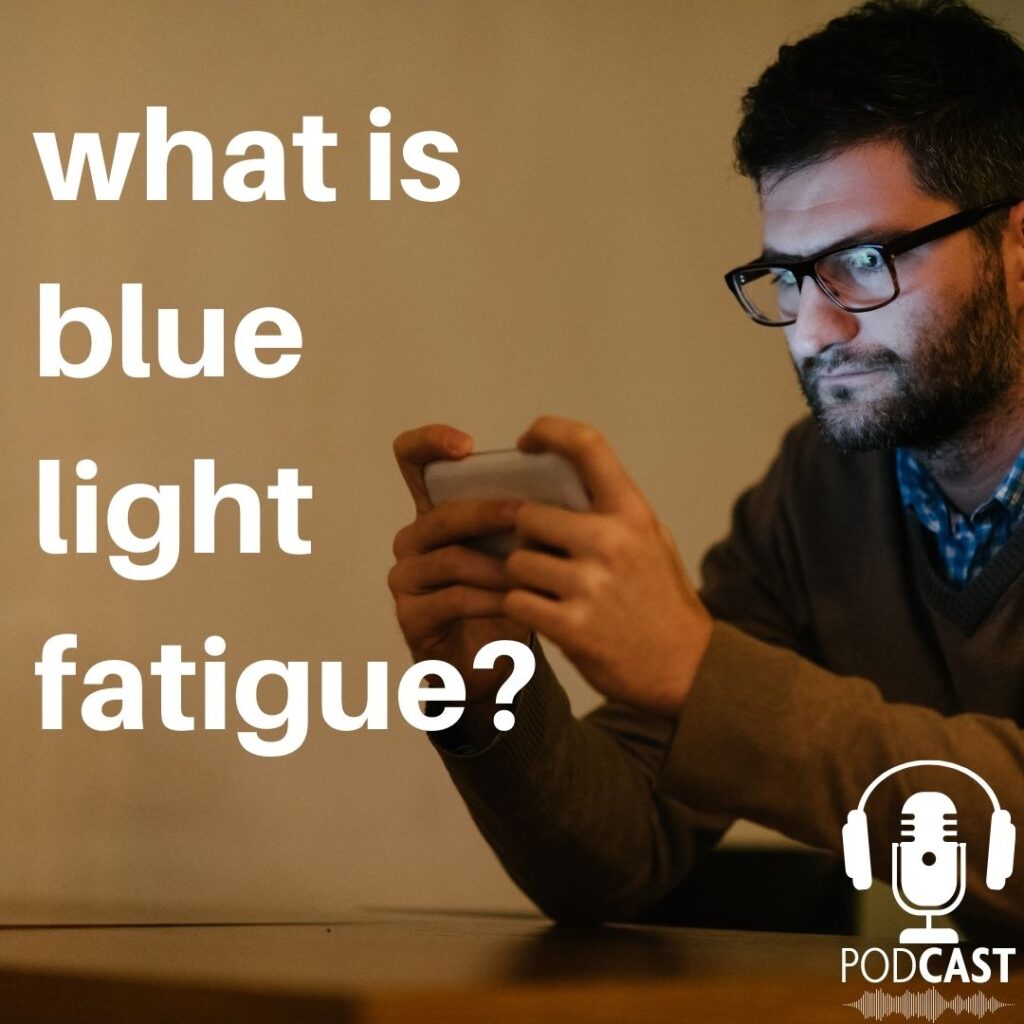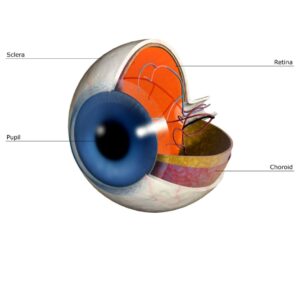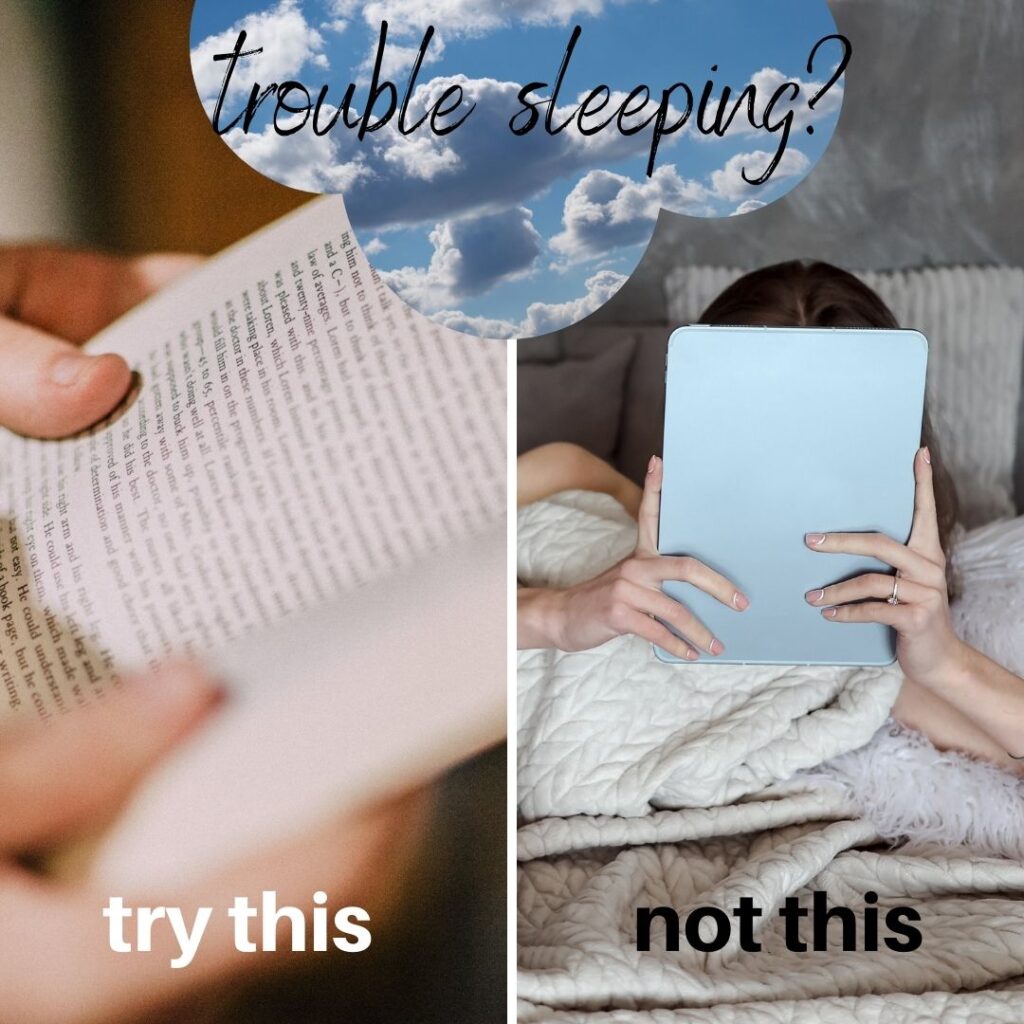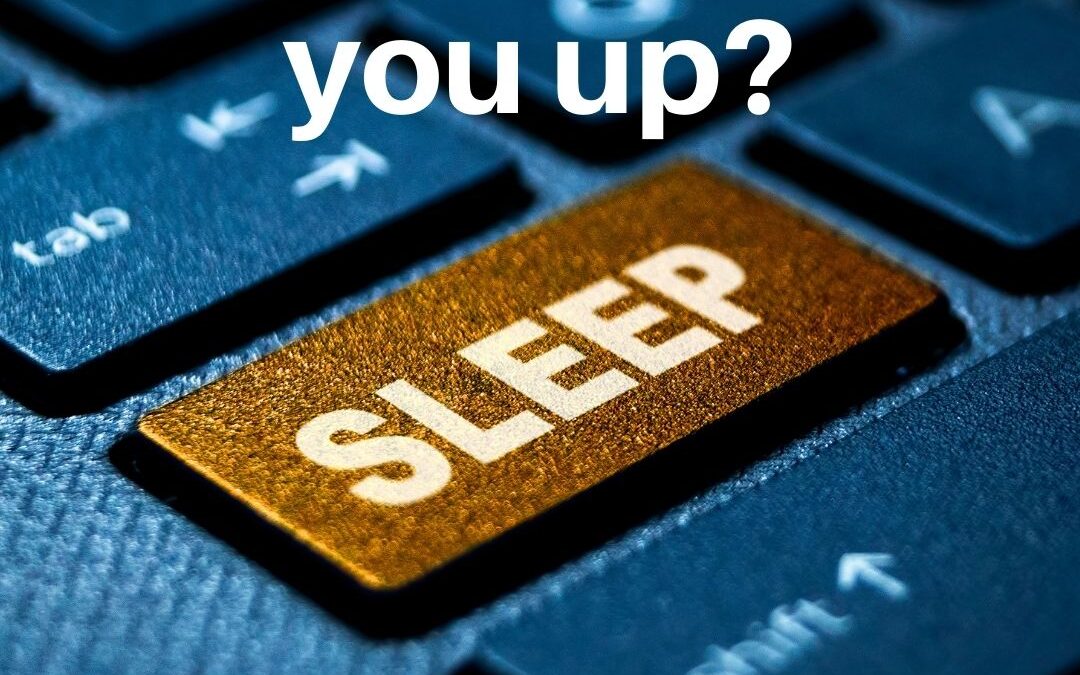
Blue light late at night has been shown to disrupt your sleep. It’s called blue light fatigue and it interrupts your sleep because it’s essentially a reset button for your circadian rhythm.
Computers, TVs and mobile phones emit more blue light than any other colour. Not all blue light is created equal.
What does blue light do?
There are three types: violet, blue-violet, and blue-turquoise light. Blue-turquoise light is sometimes referred to as a beneficial blue light because it has less energy than the other two, and it can help you sleep. The other two have the ability to damage your retinas because they have much more energy contained within them (380-455 nm). That’s why good quality sunglasses on ski slopes and near water are important.
Now, this isn’t a good / bad thing, because you need blue light for your health and well being. Blue light can boost your mood, make you feel alert and focused. It helps with cognitive function, and memory. And it regulates our circadian rhythm, which is our natural cycle of being awake and easing down to a period of restorative sleep. But too much blue light interrupts sleep because it tells your master clock that it’s time to be wide awake. So you get that daytime fatigue, and it can also increase the risk of macular degeneration.
How does blue light interrupt sleep?

You have cells in your retina which are sensitive to blue light. And their job is to tell your brain how light it is.
So when it’s light, it’s daytime. When it’s daytime, you need to be alert. But here’s the twist. There are other cells in your retina that are sensitive to other colours. So it’s not just blue light that needs to be dialled down to signal sleepy time. It’s about all the colours.
Is blue light getting a bad rap?
Well, yes and no. Blue light does interrupt your sleep patterns because it’s signalling that it’s daytime to your body clock. But consuming stimulating content, fun visuals, thought provoking stuff, energising herbs and supplements, and foods that are high in sugar; will also keep you awake. The difference is that late night phone surfing often combines blue light, bright screens, colour, stimulating content; and it’s often combined with a sugary snack. And all of these things add up to wired and tired at bedtime. So what can you do?

If you like to read at night, treat yourself to a paperback.
If you prefer to read on your phone or your tablet before bed, rather than that good old fashioned book; you’ll find it harder to get to sleep and you will have less REM sleep as well. All of which is going to leave you with a sleep hangover the next day.
Do blue light blocking gadgets make a difference?
There’s no need to invest in those blue light blocking gadgets. It’s only part of the problem. And according to Philip Yuhas, assistant professor at The Ohio State University College of Optometry, most blue blocking gadgets don’t block out enough blue light to make a difference.
How to set yourself up for a deep restorative sleep
Put down your phone, turn off the TV, and dim the lights about two to three hours before bed. Indulge in a relaxing bath by candlelight (yep, even during the week). Sip some chamomile tea or do a few relaxing stretches.
There’s nothing in your inbox that can’t wait until tomorrow. And you’ll be way more productive after eight hours of deep, restorative sleep. So set yourself up for that.

